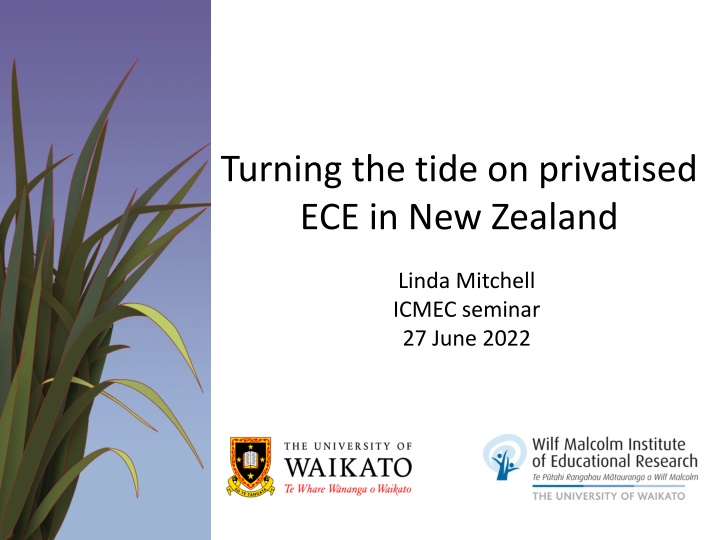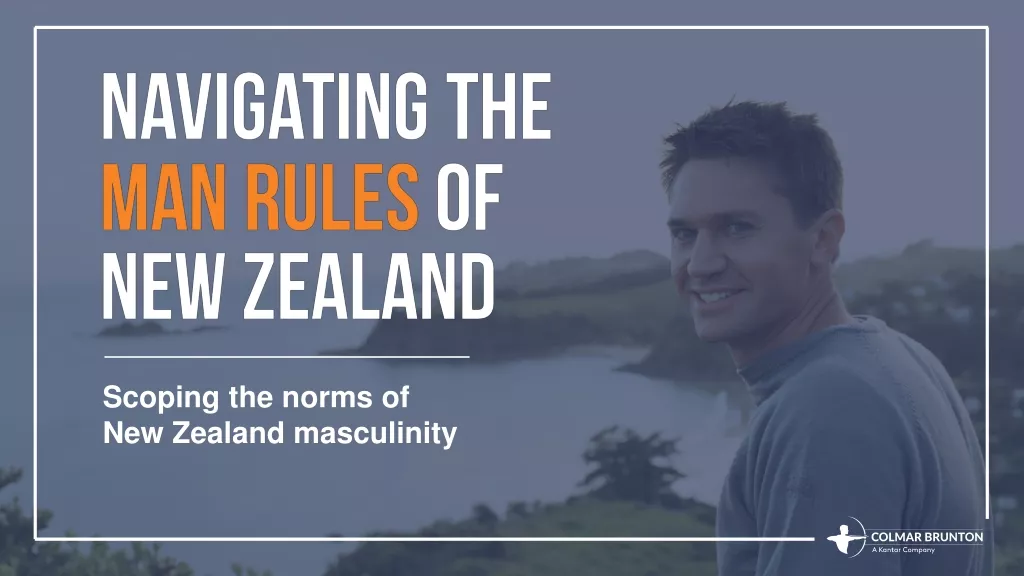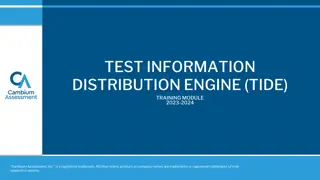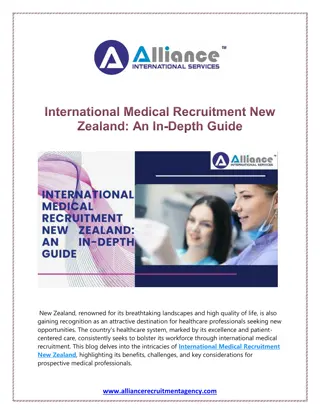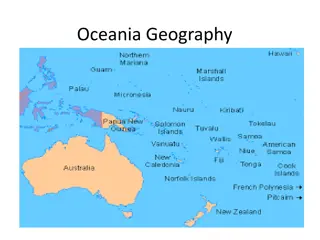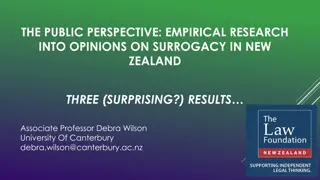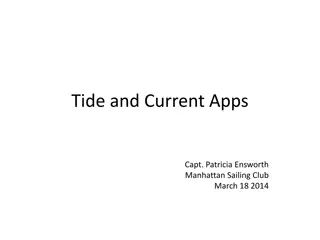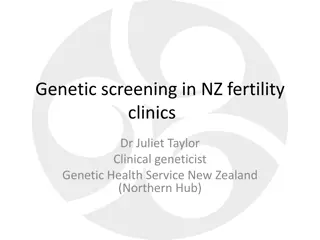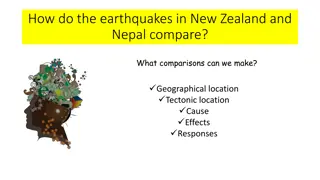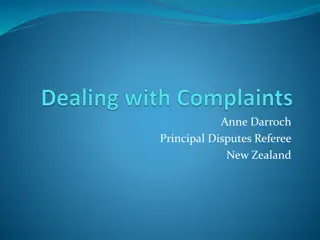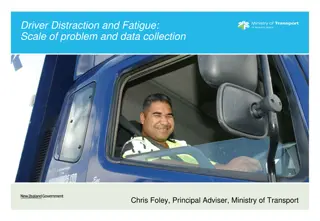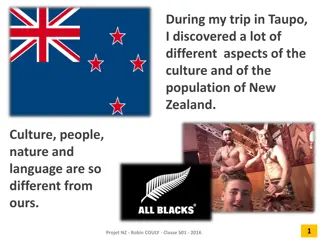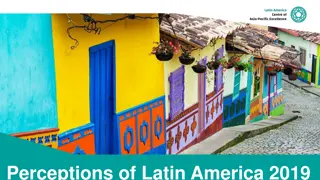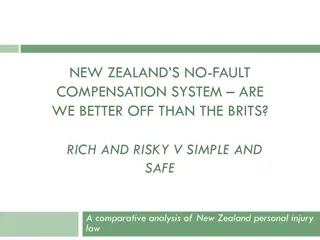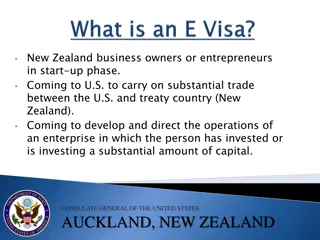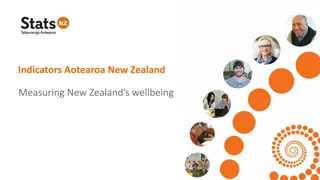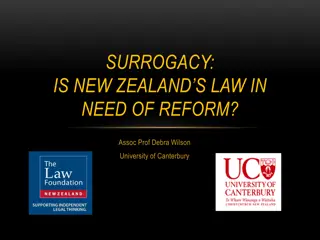Turning the Tide on Privatised ECE in New Zealand - ICMEC Seminar Highlights
Linda Mitchell's seminar on turning the tide on privatised early childhood education in New Zealand delves into the importance of valuing ECE as a public good and a community of learning that empowers both adults and children. The presentation covers key aspects such as ECE policy reforms, impacts of marketisation, contrasting stories of ECE during the pandemic, and the Early Learning Action Plan for the way forward.
Download Presentation

Please find below an Image/Link to download the presentation.
The content on the website is provided AS IS for your information and personal use only. It may not be sold, licensed, or shared on other websites without obtaining consent from the author.If you encounter any issues during the download, it is possible that the publisher has removed the file from their server.
You are allowed to download the files provided on this website for personal or commercial use, subject to the condition that they are used lawfully. All files are the property of their respective owners.
The content on the website is provided AS IS for your information and personal use only. It may not be sold, licensed, or shared on other websites without obtaining consent from the author.
E N D
Presentation Transcript
Turning the tide on privatised ECE in New Zealand Linda Mitchell ICMEC seminar 27 June 2022
Premises 1. A primary purpose of early childhood education is to form the democratic citizen, capable of engaging in a democratic way of life and democratic forms of relationship. (Fielding and Moss, 2011) AND ECE a human right and a public good a community of learning that empowers both adults and children to learn and grow as equal participants in a democratic society . (Helen May, 2009) 2. Marketisation and privatisation conceptualise ECE services as businesses, parents and children as consumers. They prioritise financial values; these are incompatible with valuing ECE as a public good, an institution in civil society. 3. It is possible to turn the tide on marketisation and privatisation.
Structure of presentation 1. Context: ECE policy reforms and how we got there 2. Impacts of marketisation: growth of the for- profit sector 3. Contrasting stories of ECE during pandemic 4. Early Learning Action Plan and way forward
ECE - A paradigm of diversity Teacher-led Kindergartens (100% community-based) Education and care centres (72% private) Homebased (92% private) May be based on philosophy, e.g., Rudolph Steiner, Montessori, Reggio Emelia Parent/wh nau-led Playcentres Playgroups K hanga reo (immersion M ori) Pacific early childhood groups (immersion or bilingual in a Pacific language)
Theme 1: ECE policy reforms Moving towards an integrated early childhood education system from birth to 6 years in vanguard of wave of countries that embarked on education-based integration.
A timeline of integration and ECE reforms 1986- care and education services integrated within Department of Education 1988 3 year integrated teacher training inclusive of care and education and all ages 1989 towards a common funding system 1991 unions representing kindergarten and childcare amalgamate 1996 seven ECE organisations publish Future Directions , a blueprint for ECE 2002 government publishes Nga Huarahi Arataki. 10 year strategic plan Staged plan to reach target of 100 percent qualified registered ECE teachers (on the way) Kindergarten teachers pay parity 20 hours free ECE for 3 and 4 year-olds 2009 nine ECE organisations publish Strengthening community-based ECE in Aotearoa 2021 government publishes Early Learning Action Plan 80% registered teachers in regulated staffing positions (goal 100%) More steps towards pay parity for teachers in education and care centres Planned provision for new ECE services
The power of collective advocacy
Theme 2 policy: the uncurtailed growth of the for-profit education and care sector 100 90 80 70 60 50 40 30 20 10 0 2002 2003 2004 2005 2006 2007 2008 2009 2010 2011 2012 2013 2014 2015 2016 2017 2018 ECCommunity-based ECPrivate HBCommunity-based HBPrivate
Inequalities in quality and access Marketisation and privatisation risk deepening, consolidating or widening inequalities of access to ECEC provision and driving qualitative differences between types of provider (Lloyd, 2012, p. 8)
Tenets of community-based provision The service is seen as a community asset and the children, parents, families and community benefit from it Collectivity, partnership and participation are hallmarks of decision making The full funding from public resources goes into educating the child and supporting their family
Theme 3: Impact of COVID-19 on ECE services Survey of managers Interviews with managers Media commentary
Funding during lockdowns 3 and 4 Ministry of Education Ministry of Education funding continued based on average enrolments Covid-19 funding - only education and care and homebased applied for this Wage subsidy (72%) Rent reduction (16%) Interest free loan for small businesses (16%)
Working in solidarity with workers, families and communities ECE for children of essential workers Distance learning under changed conditions Support for staff wellbeing Resources and brokering support for families Sharing expertise with other ECE management
Employment actions taken by education and care management during lockdowns Employment actions Education and care n=141 (%) Reduce staff hours 35 (25%) Not fill permanent vacancies 32 (23%) Make some permanent staff redundant 10 (7%) Reduce staff pay 6 (4%)
From private corporation to charitable family trust Complex financial engineering Family owners sold their shares to their family run charity (WFF) Childcare giant Best Start audit triggers $7m tax bill (NZ Herald, 15 April, 2021) WFF repaid purchase through interest free loan from now tax free earnings Quarter of rent payments to family owned entities $200m per year government EC funding; $26.9m wage subsidies.
During the Covid-19 lockdown Evolve received wage subsidies of $12 million, continued government ECE funding subsidies, and at the same time, offered full-time staff illegal 20-hour contracts, with a requirement to be on-call (unpaid) for a further 20 hours, in case they were needed.
Busy Bees Childcare 75 settings in New Zealand, 365 in UK, 153 in Australia, 417 in Europe, 127, North America, 83 Asia (Nursery World, 2021) CEO of Australian company, Think, made $44 million selling his shares to Busy Bees. (Spitting off the cash, p. 14)
ECE rollup. Expansion in New Zealand through acquisitions and exit We're going to dominate the fragmented early childhood education industry in New Zealand through acquisition growth with commercial debt, equity and vendor finance. Our goal is to consolidate 100 facilities in the early childhood education sector & exit. Early childhood education has performed extremely well . . . We have a group of experienced Board of Directors specialising in early childhood education, legal, finance, accounting and mergers & acquisitions. (Institute of Directors advertisement for position of chair, February, 2022)
Theme 4: Early Learning Action Plan Early learning services are part of a planned and coherent education ecosystem that is supported, accountable and sustainable. Regulate for 80 % qualified teachers in teacher-led centres, leading to regulation for 100 %. A mechanism that improves the levels and consistency of teachers salaries and conditions across the early learning sector.
Way forward Turn the tide on privatised, profit-focused provision, re- asserting ECE as a public good and collective responsibility: Require structures to include community, parent and teacher representatives as full decision-makers Remove eligibility for capital works and properties funding from for-profit centres Cap fees and monitor enrolment policies Require full accountability for spending of all funding Pay parity for all ECE teachers, Ministry of Education a party to collective agreement Plan new provision and restrict it to community and public ECE.
Democratically organised networks, effective unions and community associations
